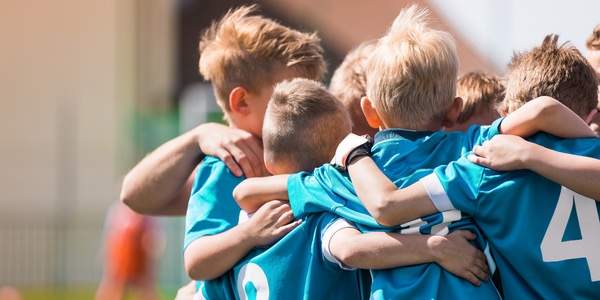How Overuse Injuries Can Undermine Your Mental Game
That’s the message from Robert Weil, a sports podiatrist and host of the Sports Doctor Radio Show. He recently was a guest on our Ultimate Sports Parent podcast.
It’s important to understand the pressures that lead to overuse injuries, he says. First of all, young athletes who play one sport year-round are more likely to experience these injuries. Instead, they should be playing more than one sport.
“It’s better to use different parts of the body and play more than one sport. It enhances balance, stability and motion control,” he says.
In addition, parents and coaches often push kids to keep playing even if they’re injured. A rule of thumb: Don’t let young athletes play if they have to take over-the-counter medications–Advil, for example–to reduce pain. This rule applies especially to high achievers, who may be reluctant to give up playing.
What’s more, athletes who participate in dance and gymnastics often are pressured to lose weight or aim for certain body types, Weil says.
This type of pressure can also lead to burnout.
On his radio show, the Number One concern from listeners is mental health–across the globe, says Weil. “This is where the mental side is a very big deal. Pressure to play hurt is only one type of pressure.”
Gymnast Simone Biles’ decision to give up an Olympic event last year because she didn’t feel ready is one example. She decided to resist caving into pressure when she was bombarded with it, as the gymnast with the most World medals.
Former competitive swimmer Michael Phelps–the most decorated Olympian of all time–now does commercials about the mental side of sports, saying, “It’s okay to not be okay.” That’s an important message, says Weil.
To help kids avoid overuse injuries and the mental game issues that accompany them, Weil suggests that parents begin by seeking advice from a physical therapist about possible strengthening exercises.
He also suggests visiting a podiatrist to see if kids need orthotics, are wearing properly sized shoes or could benefit from exercises that strengthen their feet and ankles.
Parents also need to check in with their sports kids to make sure they’re not experiencing any physical aches and pains. They should leave the lines of communication open so that young athletes feel comfortable saying that they hurt too much to play or practice.
“Be a good listener, open up that dialogue with your kids. You can’t go wrong with a personal trainer or physical therapist. Not following these suggestions can lead to kids getting injured or experiencing burnout and mental pressure or deciding to drop out,” he says.
Related Articles on Kids’ Mental Game:
- How Overuse Injuries Hurt Sports Kids’ Mental Game
- Injuries and Self-Image in Youth Sports
- Coping With The Mental Side of Sports Injuries in Kids
*Subscribe to The Sports Psychology Podcast on iTunes
*Subscribe to The Sports Psychology Podcast on Spotify
Improve Your Mental Game From Anywhere In The World

We’re certain that, as a parent, you want to help your child develop confidence and discipline in sports and life. And as a sports parent, you’d love for your children to reach their potential in sports. But encouraging your child to strive for greatness without pressuring them can be a challenge.
You can get expert mental coaching with us from anywhere. Meet with us via Zoom, Skype, FaceTime or phone call. With today’s video technology, we are able to connect with athletes and coaches all over the globe.
Call Us Today to Schedule Your Free 15-Minute Session.
Find Out How Your Athlete Can Benefit From One-on-One Mental Coaching!

